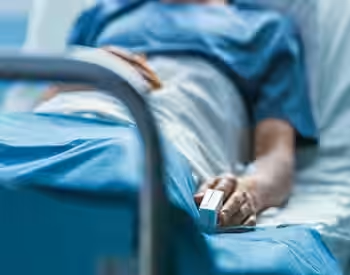NHS: According to OECD report, UK has now got one of the worst healthcare systems in the developed world
According to a new critical report, The UK has one of the worst healthcare systems in the developed world, stating that the country has a poor record of preventing ill health.

The conclusion, from the Organisation for Economic Co-operation and Development (OECD), states that hospitals are now so short-staffed and underequipped that people are also dying unnecessarily because of a chronic lack of investment.
Hospital staff are too hurried to improve levels of care that have in many areas fallen below other countries. Almost 75,000 more doctors and nurses are needed to match standards in similar countries the OECD said in its annual Health at a Glance study comparing the quality of healthcare across 34 countries.
Britain was listed as one of the countries still trailing behind the best performers in survival following diagnosis of different types of cancer, coming 21st out of 23 countries on cervical cancer and 20th out of 23 countries on breast and bowel cancer survival.
The access to care is not the problem, but rather the quality of care in the UK is poor throughout many key health areas. The report has said that the NHS struggles to get even ''basics'' right, citing a lack of investment over the last six years.
In order to reduce premature mortality in the country, the organisation has called for “urgent attention” to tackle high rates of smoking, harmful alcohol consumption and obesity, all which are above the OECD average. For example, 19 per cent of adults in the OECD are obese on average, but the figure in the UK is 25 per cent.
Even though survival after being admitted to hospital for heart attack and stroke is improving, it is worse than many other OECD countries, the study has said. The UK is placed 20th out of 32 countries on heart attack deaths.
Mark Pearson, OECD Deputy Director of Employment, Labour and Social Affairs, said many medics were too rushed to improve the care they give. He said: “At the moment in the NHS I think there is the risk that people do not have the time to do that. What they are doing is going through the processes ... rather than being a learning organisation, an organisation that can improve.”
He further stated that the UK was performing “outstandingly poorly” on preventing ill health by tackling issues such as obesity due to low levels of public investment in healthcare. The nation was spending noticeably less than many OECD countries with NHS funding remaining static between 2009 and 2013. Mr Pearson went on to add ''you get what you pay for'' in healthcare.
The OECD average number of nurses and doctors is 9.1 and 3.3 per 1,000 population respectively, while the figure in the UK is 8.2 and 2.8, coming in below average for both number or nurses and doctors. If the UK were to match the OECD average, 47, 700 more nurses and 26, 500 more doctors would be needed and the extra staff would cost another £5bn a year.
Nigel Edwards, Chief Executive of the think tank the Nuffield Trust, has called junior doctors ''the backbone of the workforce in hospitals'' than more qualified doctors. His statement came as Jeremy Hunt, Health Secretary, writes to junior doctors in England is a last attempt to persuade them not to take action. This letter explains the changes involving new contracts and a few concessions such as basic pay rising by 11 per cent, but other aspects, including what constitutes unsociable hours, are being curbed.
Although UK has won praise for its handling of vaccinations, such as the flu jab for over 65s and breast and cervical screening rates being well above the OECD average, too many lives are still being lost due to the quality of care not improving fast enough. The report states, “Survival following diagnosis for cancer has increased in the United Kingdom over the past 10 years, but the UK still remains in the bottom third of OECD countries in five-year relative survival for colorectal cancer, breast cancer and cervical cancer, though survival rates are improving at least as fast as the OECD average. The United Kingdom does not excel at delivering high-quality acute care either.”
A Department of Health spokesperson said:
“We are making the NHS the safest healthcare system in the world which is why we have invested £10 billion to fund the NHS’s own plan for its future. We know there are areas where the NHS can improve which is why we have prioritised investment in the frontline and there are already more than 21,400 extra clinical staff, including 10,500 additional doctors and more than 7,600 additional nurses on our wards since May 2010.''

